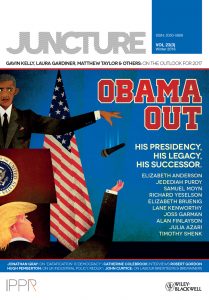Elections Have Consequences: What Happened in 2016 and What May Happen in 2020
Almost four years, a pandemic, countless protests, and an impeachment later, it seems that the election of Donald Trump in 2016 has had more severe and deadly consequences than many had imagined. While his election over Hillary Clinton was difficult to imagine in itself – for pollsters, political operatives, and the general public alike – and took the entire world by surprise, it was even harder to project what life in the U.S. would be like for the subsequent four...




















